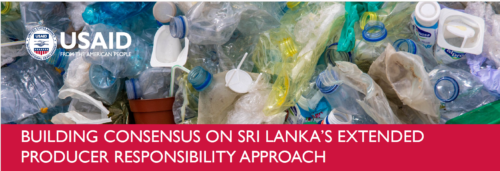MWRP Sri Lanka: Building Consensus on Sri Lanka’s Extended Producer Responsibility Approach
Over the past several years, the Government of Sri Lanka (GoSL), the private sector, and environmental groups, among others, have recognized the importance of managing post-consumer plastics to reduce pollution and improve public health, city aesthetics, and disaster mitigation.
